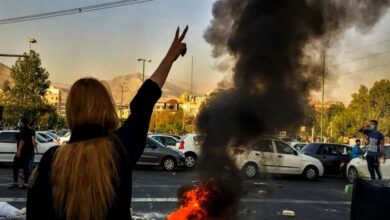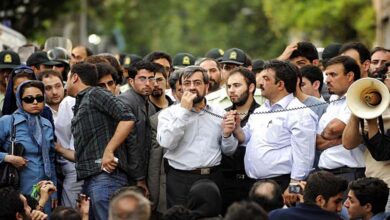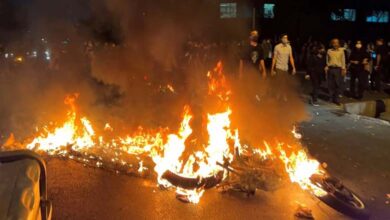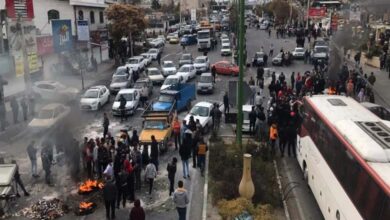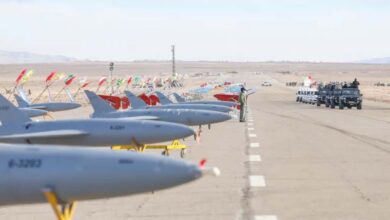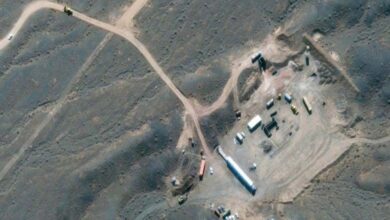Pager Explosions Lead Iran’s Revolutionary Guards to Ban the Use of Communication Devices
The Revolutionary Guards carry out a wide operation to inspect all devices, not just communication equipment.
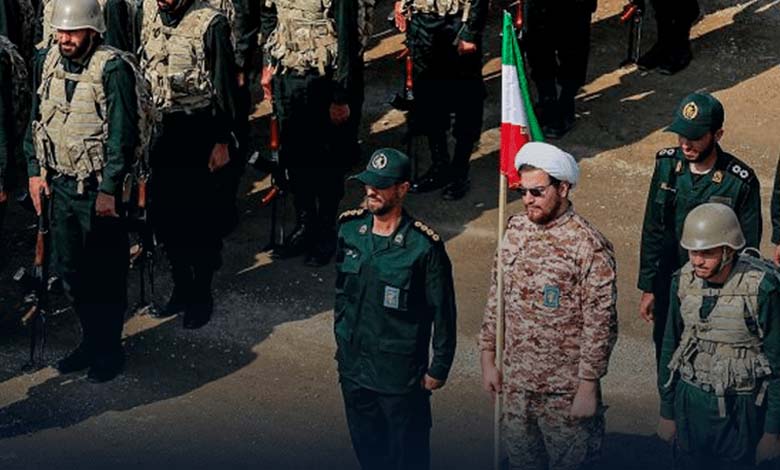
Two senior Iranian security officials stated that the Revolutionary Guards have ordered all their members to stop using any communication devices after thousands of wireless devices used by their Hezbollah allies in Lebanon exploded in deadly attacks last week.
-
Israel and Hezbollah: Is Confrontation Inevitable?
-
Israel and Hezbollah… 6 Months of “Measured Tension”
One of the security officials said that the Iranian Revolutionary Guards are conducting a wide operation to inspect all devices, not just communication equipment. He added that most of these devices are either locally manufactured or imported from China and Russia.
The official, who requested anonymity due to the sensitivity of the matter, explained that Tehran is concerned about Israeli infiltration that might also involve Iranian agents inside the country working for Israel. A comprehensive investigation targeting mid- and high-ranking officers in the Revolutionary Guards has already begun.
-
Will limited clashes between Israel and Hezbollah lead to a widespread war? Latest developments
-
Washington Post reveals how Lebanese pay the price for Iranian threats and ongoing Hezbollah-Israel clashes
“This investigation includes scrutinizing their bank accounts both inside and outside Iran, as well as their travel history and that of their families,” he added.
On Tuesday, simultaneous explosions targeted wireless communication devices (pagers) used by Hezbollah in Lebanon. The following day, hundreds of wireless communication devices (walkie-talkies) used by Hezbollah members also exploded. These attacks resulted in the deaths of 39 people and more than 3,000 injuries.
-
Violent Clashes Between Hezbollah and Israel Amid Preparations for Total War in Southern Lebanon
-
Leaks from the Secret Meeting: Iran Refuses to Support Hezbollah and its Iraqi Militias Against Israel
Lebanon and Hezbollah accuse Israel of being behind the attacks, but Israel has neither confirmed nor denied its involvement.
The security official refused to provide details on how the Revolutionary Guards, who number 190,000 personnel, communicate. “We are currently using encrypted messaging systems,” he simply said.
According to the same official, there is significant concern within Iran’s ruling institution. The Revolutionary Guards have contacted Hezbollah for technical evaluations, and several samples of the explosive devices have been sent to Tehran for examination by Iranian experts.
-
Israel Prepares Logistically and Militarily for War with Hezbollah
-
Washington seeks to contain the war between Hezbollah and Israel by sending an official to Beirut
Another senior Iranian official indicated that the Islamic Republic’s main concern is the protection of the country’s nuclear and missile facilities, particularly those located underground.
“Since last year, security measures at these sites have significantly increased,” he added, referring to the heightened security after what Iranian authorities claimed was an Israeli attempt to sabotage Iran’s missile program in 2023. Israel has never commented on the matter.
-
Israel targets Hezbollah on Syrian and Lebanese fronts
-
The leaders of Hezbollah and Hamas gather to discuss Israel-Arab relations
“These security measures and extreme precautions are unprecedented,” he said, noting a substantial increase in security protocols compared to previous levels after the pager explosions in Lebanon.
The Iranian Revolutionary Guards, founded after the 1979 Islamic Revolution to protect the ruling religious system, are a powerful political, military, and economic force directly under the authority of Supreme Leader Ayatollah Ali Khamenei. They have land, sea, and air forces that oversee Iran’s strategic weapons.
-
Israel Urges Lebanese Citizens to Immediately Move Away from Hezbollah Sites
-
The “gouged eyes” could have been avoided… Here’s what Hezbollah overlooked
Through their external arm, the Quds Force, the Revolutionary Guards wield influence across the Middle East by providing money, weapons, technology, and training to groups allied with Tehran, such as Hezbollah in Lebanon, Hamas in Palestine, the Houthis in Yemen, and various factions in Iraq.
The first Iranian official stated that the Iranian military uses a variety of encrypted communication devices, including walkie-talkies, to maintain secure communications. He added that while the models and brands may vary, Iranian military equipment is often locally developed or acquired from a mix of local and foreign suppliers.
-
Did Israel Manufacture Imitated Wireless Devices to Detonate in Lebanon?
-
Iran’s “Recruitment” of an Israeli Businessman to “Assassinate Netanyahu”: The Full Story
The Iranian military stopped using pagers more than two decades ago, he noted.
Iran has developed military transmission devices through its defense industry sector to avoid relying on foreign imports, particularly due to Western sanctions imposed on Tehran over its nuclear program. However, before this, Iran imported communication devices from countries such as China, Russia, and even Japan.
On the other hand, Iran’s Revolutionary Guards announced on Sunday the arrest of 12 people accused of collaborating with Israel and plotting operations against Iran’s security.
-
Did Mossad Rig Hezbollah’s Communication Devices in Taiwan?
-
A Surprise Breaks the Silence… Israel Decided to Detonate “Pagers” for This Reason
“As the Zionist regime (Israel) and its Western supporters, particularly the United States, failed to achieve their malicious objectives against the peoples of Gaza and Lebanon, they now seek to extend the crisis to Iran through a series of planned operations targeting the security of our country,” said the statement.
The members of this network of 12 agents were arrested in six different provinces of Iran, though no date was specified.
-
Washington Seeks Normalization Between Israel and Saudi Arabia Before Presidential Elections
-
The “Empire” of Smuggling and Gold: Why Lebanon Grows Poorer While Hezbollah Becomes Wealthier
Iran and Israel have been engaged in a shadow war for decades, accusing each other of sabotage and assassination plots.
The conflict has escalated, with exchanges of fire between Israel and Hezbollah in the past year amid the Gaza war, which erupted after Hamas attacked cities in southern Israel on October 7.
-
Geagea attacks Hezbollah: Dragging Lebanon into an “absurd war” that did not benefit Gaza
-
Hezbollah’s Response to Chokr’s Assassination Eased Tensions
Iran and Hezbollah have accused Israel of assassinating Hamas political bureau chief Ismail Haniyeh in Tehran and Hezbollah’s senior military commander Fouad Shokr in Beirut just hours apart in July. Israel claimed responsibility for Shokr’s death but did not confirm involvement in Haniyeh’s killing. Supreme Leader Khamenei has described Israel as “a cancerous tumor… that will undoubtedly be eradicated and eliminated.”


